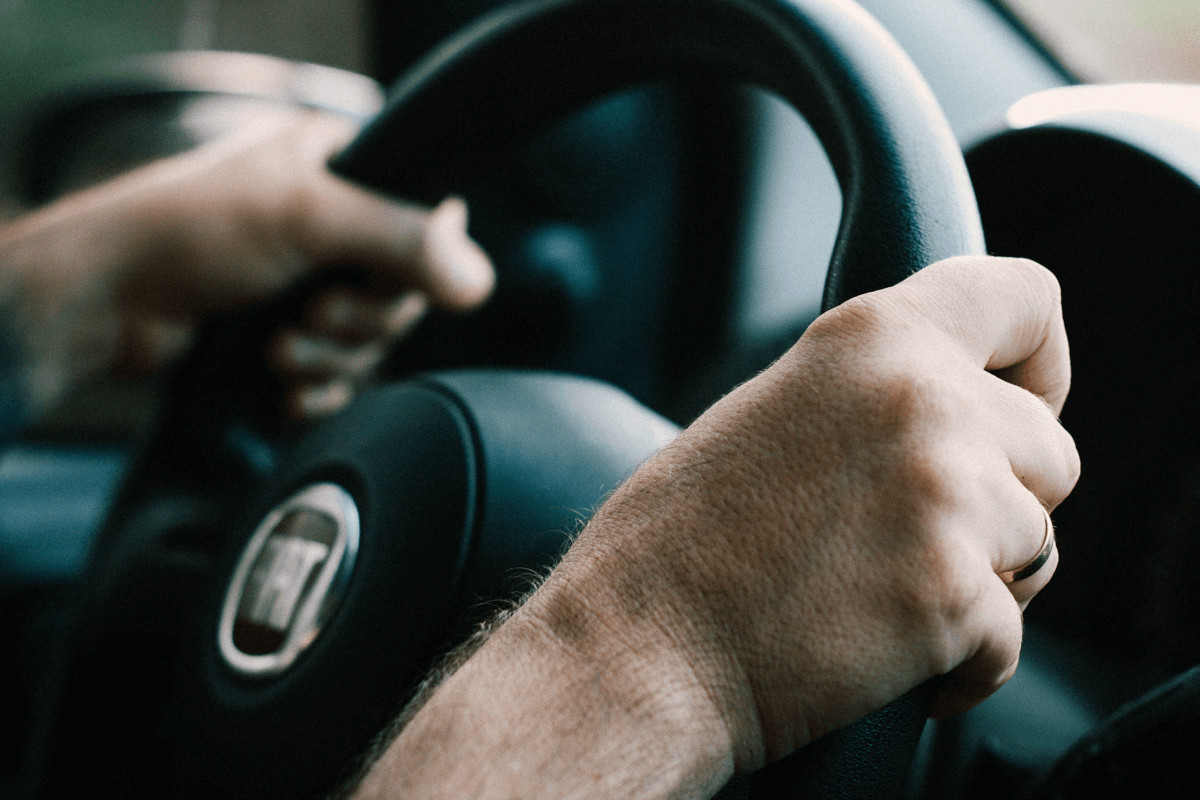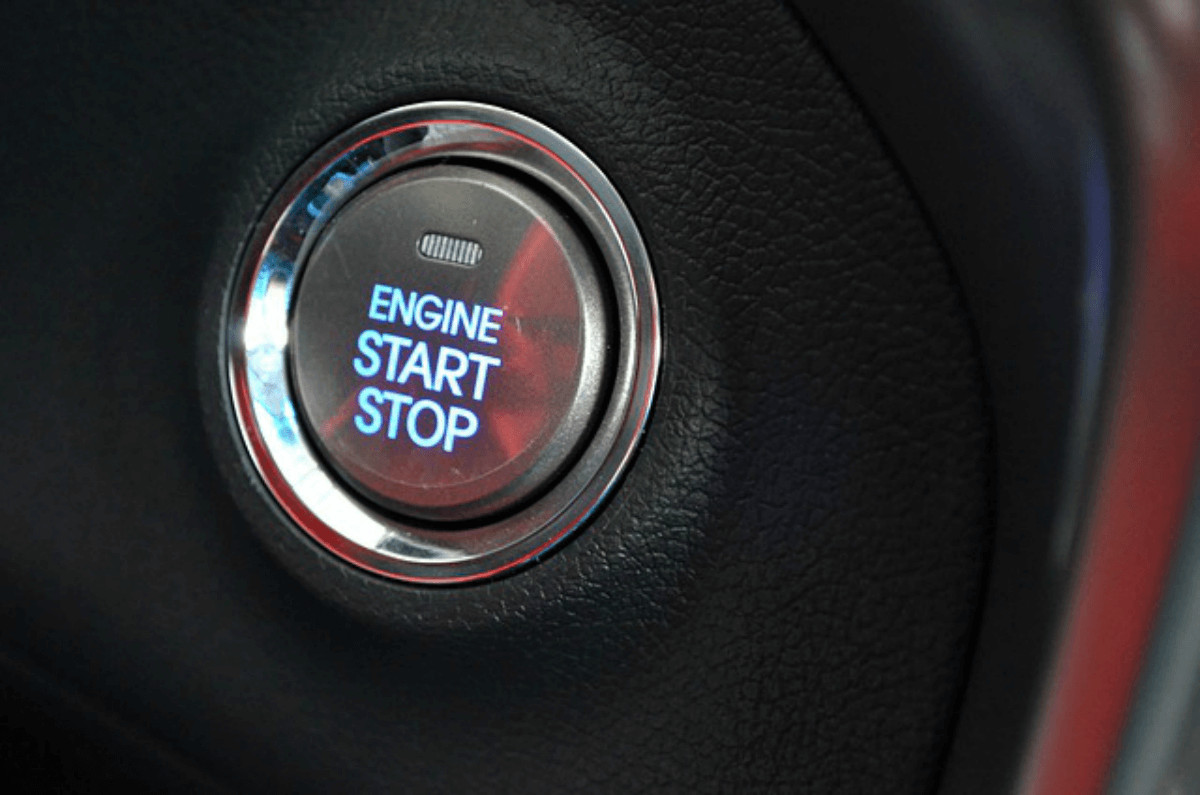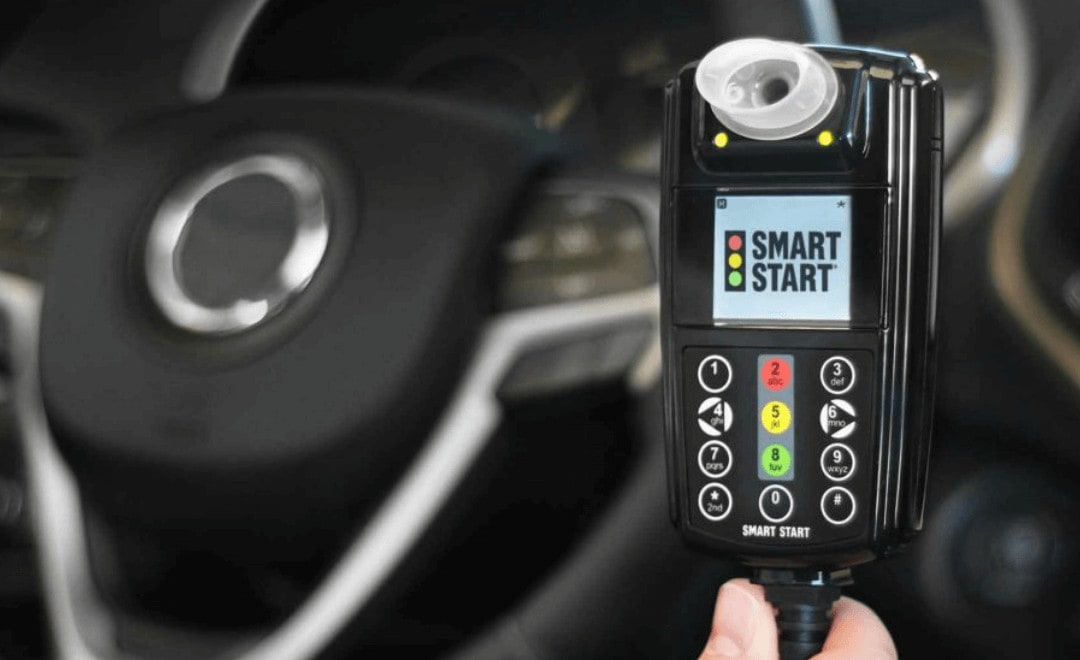Image property of Smart Start
North Carolina lawmakers have the responsibility to enact laws to keep our roads safe.
Part of that is to eliminate the risk of drunk driving wherever possible.
One of the tools that the legislature has given the NC DMV is the ability to require certain driver’s install interlock devices in their vehicles.
What is an ignition interlock device?
The Interlock is a device that quickly tests for the presence of alcohol from the driver’s breath. The driver must blow into the device to start the vehicle.
If any alcohol is detected, the device will go into lockout mode and the driver cannot make another attempt for 5 minutes. If a second attempt detects alcohol, the device will not allow another attempt for 30 minutes. It will also record the failed attempt in its memory; any failed attempts will be transmitted to the DMV.
The interlock requires random checks while the car is driving.
A tone will sound indicating a test is required. If the test detects alcohol it will go into alarm mode, it will not stop the car but it will direct the driver to pull over and stop the vehicle. In some models, the car will begin honking its horn and flashing its lights, until the car is stopped. It will then begin the lockout sequence and require an alcohol free test within 5 minutes.

What happens when an ignition interlock device detects alcohol?
Any time the interlock detects alcohol or if it fails to register an alcohol free test after being in alarm mode, the info is transmitted to the DMV. The device itself cannot communicate with the DMV, the information stored in its memory and then transmitted to the DMV by the technicians that regularly service the device, usually monthly.
Any violations will result in a letter from the DMV stating that driving privileges are scheduled for a suspension 10 days after the letter is mailed from the DMV. The driver then has 10 days to request a hearing on the matter. The cost for the hearing is $450. Interlock violation hearings are the only DMV hearing where the driver is billed after the hearing.
False Readings
It is possible for the mouth devices to give false readings. Usually this is due to mouth contaminants. The manufacturers warn that smoking and certain energy drinks can cause a false violation. For this reason, it is suggested that drivers keep a bottle of water handy and rinse their mouth out before each blow.
How does an ignition interlock device work?
Interlocks and similar devices work by detecting ethanol in a fuel cell.
The ethanol molecules react with a membrane treated with a substance called platinum black. The ethanol is converted to acetic acid, electrons are released and a current is generated in proportion to the amount of alcohol detected. The current released corresponds to a number, which is displayed on the display.
I would caution any tinkerers from trying to defeat the device; it will record any violations or lack of testing. Not only will it cause the driver to lose privileges, it a class one misdemeanor in NC to tamper with the device.

Requirement #1: BAC level of .15 or above
The most common requirement for an interlock device in NC is for a driver that is convicted for a DWI where the BAC (Blood Alcohol Concentration) is at or above a .15.
If the driver would otherwise be eligible for a post conviction driving privilege, if the breath or blood test registers at .15 or above at conviction, the driver has to surrender his license for 1 year.
After 45 days, the driver can have a privilege if an interlock is installed. Proof of the installation must be furnished to the judge issuing the privilege. This privilege will expire one year after conviction so the driver has to go to the DMV after 1 year and get a driver’s license with the interlock requirement on it to complete the year. The 45 days where no driving is allowed does not count towards the interlock one-year requirement. This causes a lot of confusion for driver’s nearing the end of their year.
Requirement #2: Conditional Restoration
The other common interlock requirement is conditional restoration.
This occurs after a driver has been suspended for a period of time and is still listed as suspended by the DMV. When the driver is eligible for a hearing, the hearing officer can place an interlock restriction on the driver as a condition of restoring driving privileges. This condition can last 3 years or more depending on the outcome of the hearing.
When an interlock requirement is placed on a driver, the DMV requires that all of the vehicles registered to that driver have an interlock device in them. The cost of the device is usually around $75.00 per month so it may be best to transfer any unnecessary vehicles to members of the family or have them registered as inoperable. The person required to have the interlock must only drive the vehicles equipped with ignition interlock.
3 Ignition Interlock Services in North Carolina
There are only three Interlock providers that are qualified and authorized to operate in North Carolina. If interlock is required to drive, it’s up to the driver to call, setup the installation, and prove to the court or the DMV that it’s installed. Most of the providers have offices in the larger NC cities.
Alcolock NC, Inc.
P: 1-855-664-0353
W: alcolockusa.com
Monitech, Inc.
P: 1-800-521-4246
W: monitechnc.com
Smart Start Inc.
P: 1-800-418-6255
W: smartstartnc.com
Smart Start Inc.
P: 1-800-418-6255
W: smartstartnc.com




























